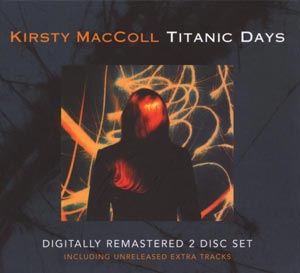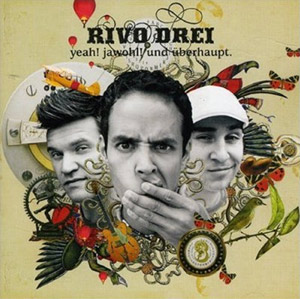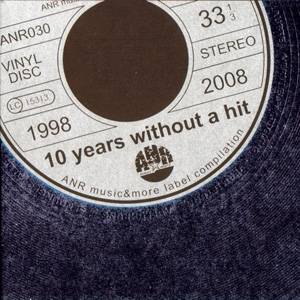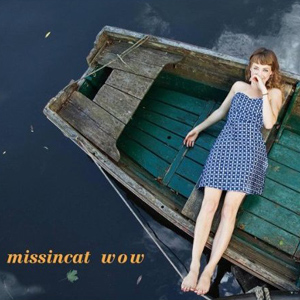|

Titanic Days [Pop]
WEBSITE: www.kirstymaccoll.com/
 |
Diese Doppel-CD ist eine Neuauflage ihres alten, gleichnamigen Albums. Das Material wurde digital neu gemastert und beinhaltet als Extra einige bisher nicht veröffentlichte Tracks.
Tracklisting:
CD 1:
1. You know it's you
2. Soho square
3. Angel
4. Last day of summer
5. Bad
6. Can't stop killing you
7. Titanic days
8. Don't go home
9. Big boy on a saturday night
10. Just woke up
11. Tomorrow never comes
CD 2:
1. Angel (Piano MIx)
2. Fabulous garden
3. King Kong
4. Dear John
5. Miss Otis regrets (Live)
6. Free world (Live)
7. Touch me
8. Irish cousin
9. Angel (Single MIx)
10. Angel (Stuart Crichton Remix)
11. Angel (Into The Light Mix)
12. Angel (Apollo 440 Remix)
Biografie (Englisch):
As Fairytale of New York - Kirsty MacColl’s 1987 collaboration with The Pogues - proves each Christmas, her music is timeless. “I don't think I was ever really fashionable,” she said on the release of her penultimate album, Titanic Days, “or associated with any one particular era or style… I think that's an advantage…”
Tragically killed in 2000, Kirsty MacColl left the world a dazzling legacy of music. The daughter of influential folk singer Ewan MacColl, she grew up living with her mother in Croydon and spent her childhood more influenced by pop than folk. That certain English storytelling pop of the sixties – songs like the Spencer Davis Group’s Keep On Running, the Beatles’ Day Tripper, Ray Davies and The Kinks’ Days (which Kirsty covered to great acclaim some years later) all weighed heavy on her imagination.
By the late 70s she was in a band of her own - Drug Addix - whose 1978 EP Make A Record is Kirsty’s earliest recording. “We weren't actually a punk hand,” she once told Mark Paytress, “but at the time punk was king and we called ourselves that just to get some gigs. It was actually an R&B band.”
When Drug Addix failed to take off, Kirsty was spotted by Stiff Records’ Dave Robinson and in 1979 released her debut solo single on Stiff, They Don’t Know About Us. The single was a radio hit, but didn’t fly off the shelves. That only happened four years later when Tracy Ullman kick-started her short-lived jump from TV to music with a number one hit cover version of They Don’t Know.
An aborted second single, You Caught Me Out, saw the end of Kirsty’s relationship with Stiff and she was taken under the wing of Polydor Records. More seven inches of wit and delight followed: Keep Your Hands Off My Baby and then the number 14 hit, There's A Guy Works Down The Chip Shop Swears He's Elvis.
While her breakthrough hit went on to be covered by everyone from Thin Lizzy to The New Seekers, Kirsty followed it up with a cover version of her own. Alongside the ‘Englishness’ of The Kinks and The Beatles, she always loved the Beach Boys and the musical universe Brian Wilson had painted with Van Dyke Parks. So she delved into that with a cover of the Beach Boys’ You Still Believe In Me.
All these songs appear on Kirsty MacColl’s debut album, Desperate Character following which she returned to Stiff to work with Tracy Ullman and, while Tracy was covering Kirsty, Kirsty covered Billy. Cue: A New England, the definitive Billy Brag song in the hands of a definitive singer.
“I just knew that Billy Bragg's A New England was like having access to an unreleased Beatles song or something - a real pressie!” Kirsty later recalled, although at the time, “Everyone else thought I was mad…” It went top 10.
In the mid 80s Kirsty married producer Steve Lillywhite and they had two children. Lillywhite had a distinct knack of layering Kirsty’s vocals to unique effect, something that can be heard on records by Van Morrison, the Stones, Simple Minds, Talking Heads and Tom Tom Club and The Smiths.
Fairytale of New York was also recorded during this period and lives to this day as one of the most moving Christmas songs of all time. Following its release Kirsty toured extensively with The Pogues which provided the inspiration to start writing again, something which formed the basis of her next album, Kite (Virgin, 1989).
Kite provided two amazing singles - one a hit (Days), one not (Don't Come The Cowboy With Me Sonny Jim!) - and the start of a musical relationship with Johnny Marr. It came at a time when Marr was fusing samples and hip-hop sensibilities with his own guitar playing. When he wasn’t working on his own Electronic dance project with Bernard Sumner, he was working on a dance project with Kirsty, the stunning 1991 single Walking Down Madison.
“I was listening to Kite for the first time in a while", she told Melody Maker in 1991, “and I thought, ‘well that's really good, but I could make the next album even more enjoyable for myself if I could actually dance to it without being paralytic!’ But I didn't want to make an album with computers. A lot of people think that dance means you have to have the beats per minute on the sleeve but to me a waltz is a dance. Walking Down Madison was written at walking speed - you can walk to it, you don't have to dance!"
Electric Landlady was the album that housed Walking Down Madison and it also featured Mark E Nevin who Kirsty had first met in the early 80s. “After a handful of drunken nights at Dingwalls and various other bars and clubs which were popular at that time,” Nevin recalls, “Kirsty and I went our separate ways. It wasn’t until 1989 that our paths crossed again. When she asked keyboard player Gavin Povey what had become of me, he told her that I was now ‘the bloke with the hat in Fairground Attraction’.”
When Kirsty MacColl and Mark E Nevin joined forces in the early 90s they were both going through difficult times. From Kirsty’s side she was divorcing Steve Lillywehite and had been dropped by Virgin. They formed a band together called The Paddle, because Kirsty felt they “were up shit creek without one.”
The Paddle’s songs soon became the basis for Kirsty’s fourth album, Titanic Days which was released on ZTT in 1994 and is re-released with a second disc of material in 2005. It’s the fourth in a series of reissues which has also seen Kite and Electric Landlady back on the shelves, to say nothing of EMI’s From Croydon to Cuba, a 65-track box set with a host of rare songs.
“Titanic Days runs right across the musical spectrum,” wrote Record Collector when it first appeared. “The baggyish beat of the first single, Angel. The almost Twin Peaks ambience of Bad. The biting melancholy of Tomorrow Never Comes, that could almost be a Robert Wyatt song, vocal textures that stray daringly into 10cc territory on Don't go home. Big Boy On A Saturday Night with its rockabilly-plus-classic-MacColl-chorus. And the huge pop extravaganzas of Soho Square and the title track all suggest that Kirsty MacColl is still happy to confound the genres in the age of the niche market.”
In the late 90s Kirsty committed less and less to vinyl, but stabilised her life and explored new areas of musical creativity. Two singles – Caroline and Perfect Day (a duet with Evan Dando) were released from the fine Best Of selection, Galore (1995). She started travelling, heading off alone for two-week jaunts through Brazil, picking up cha cha cha, salsa and other fresh rhythms that would inform all of her later work.
She also become a TV regular, providing musical interludes (many of them unreleased to this day) with tracks like Something Stupid and Bacharach and David’s Trains and Boats and Planes on French & Saunders. She recorded theme songs too, for programmmes like Moving Story and Carlton TV’s Picking Up The Pieces. This TV work – which dates back to London Girls, the theme song for a 1983 sitcom called Dream Stuffing - ranks among Kirsty’s hardest to find.
In 1998 Hux Records released What Do Pretty Girls Do?, a 15-track compilation of Kirsty’s radio sessions. It paved the way for her richest, most daring and most confident album, Tropical Brainstorm (V2, 2000). Marking the start of what could have been a whole new direction, Tropical Brainstorm started life in a shed in Bermondsey before she headed back of to Brazil to add local guitars.
“I went to Rio and Salvador and then a friend set me up in a studio in Recife,” she told The Independent. “I wanted to do an acoustic thing - just a guitar and a couple of percussionists - but when I got there I realised that the guitarist wanted to be in Dire Straits. They're very into rock in Brazil and I had to spend a lot of time bullying them into being more Brazilian.”
With her most optimistic lyrics for some time, Kirsty was carrying on from where her jazza-nova hit My Affair had left off almost ten years before. Two final singles, England 2 Columbia 0 and Treachery, gained favourable airplay. But just two months after promo singles of Treachery had been pressed, Kirsty’s life was tragically taken short.
“Singer Kirsty MacColl died tragically yesterday afternoon in a boating accident in Cozumel, Mexico, where she was holidaying with her two sons,” read a shell-shocked press release issued by her manager Kevin Nixon. “The accident happened when Kirsty, a keen diver, was hit by a speedboat travelling illegally in an area reserved for swimmers.”
So while 2005 sees much renewed interest in Kirsty’s music, it also sees a continuing fight by her friends, fans and family to find some justice and sense in her death. Headed up by her mother, Jean MacColl, Justice For Kirsty is pressing is the Mexican Prime Minister for a judicial review after an initial court case failed to sentence the owner of the boat that killed Kirsty, convicting only its deck hand who was forced to pay a paltry fine.
Even in her last years Kirsty MacColl was experimenting with styles, and confounding critics. “The Times and Rolling Stone have both got me down as an Irish folk singer,” she once said, “which must have made Walking down Madison very confusing for them...” But the one thing that made a song like that sit comfortably alongside something like Days, and that alongside something like There's A Guy Works Down The Chip Shop Swears He's Elvis, was her unique and unswerving attitude.
“There's a lot of sexist old crap in this business,” a typically frank Kirsty once pointed out. “I’m always described as a ‘female singer-songwriter’. You don't see all these other singer-songwriters described as male singer-songwriters. I mean, what’s your genitalia got to do with it? You're either a singer-songwriter or you're not.”
(Quelle: ZTT Records)
FORMAT: Doppel-CD
Zurück zur Übersicht
|







